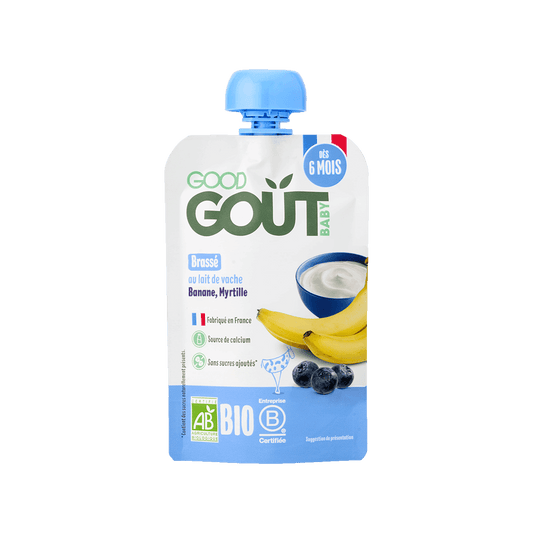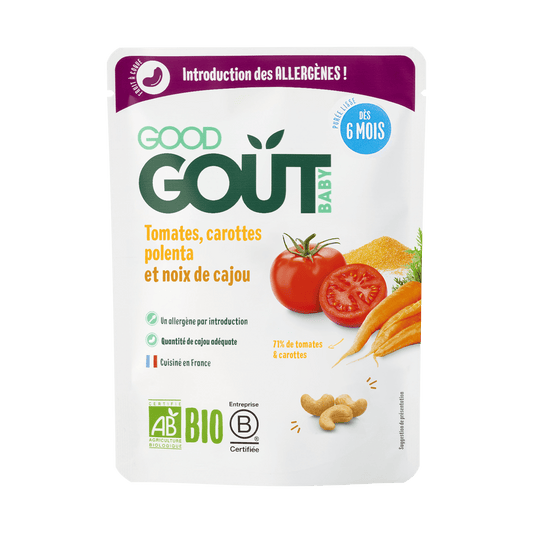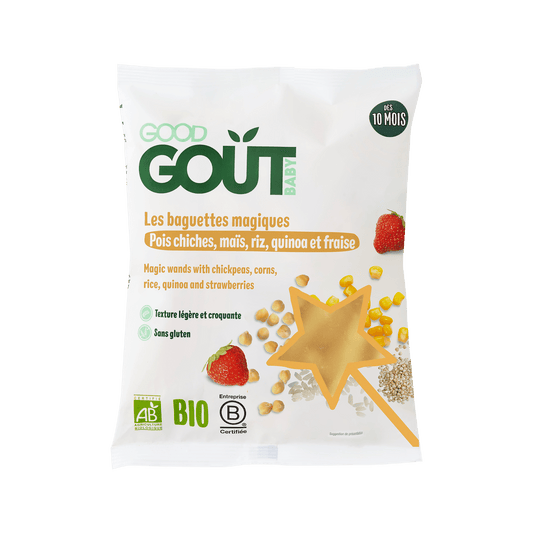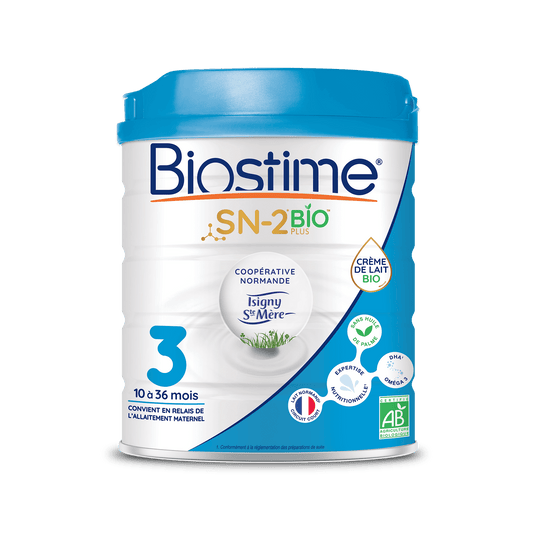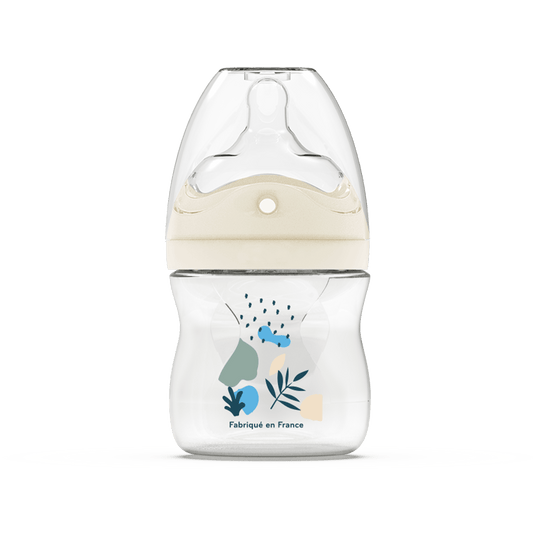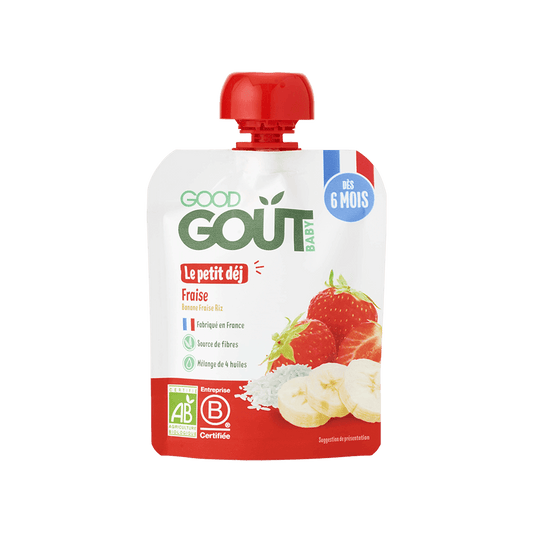Because we know the importance of the first two years of life in the acquisition of food preferences, it's important to prioritize the introduction of cereals from the very beginning of diversification. Which infant cereals should you start with? At what age should you start cereals? We'll tell you everything...
"Give me the desire... the desire to want... to serve cereal to my babyyyyy!" It all started with this complaint from the founders of Good Goût, in front of the baby cereal aisle... Since there was no question of letting them prepare for another minute for their failure on The Voice, the whole team got to work and eighteen months later the winning trio of Good Goût cereals was born. Delicious, fine, organic.
When and how to start baby cereal?
Sometimes criticized, rarely promoted by pediatricians, and even absent from health records, cereals nevertheless have their place in the adventure of food diversification. But what exactly are we talking about?
In the "Cereals" family, I ask for... wheat, barley, rye, kamut, oats, rice, quinoa, corn, millet... Sources of energy, thanks to vegetable proteins and complex carbohydrates, they allow your child to fill up on energy, essential for growth.
It is generally recommended to introduce infant cereals between 4 and 7 months. Rice flour-based infant cereals can be offered from 4 months, and other types from 6 months*.
When to introduce gluten?
Gluten is the little protein in wheat that we hear a lot about. Several studies** have concluded that gluten should be introduced into a child's diet before the 7th month. If gluten is consumed after this period, the risk of celiac disease (gluten allergy) increases. As a reminder, gluten is found in some grains such as wheat, rye, oats, barley, etc.
At Good Goût, we start off gently with an oat-wheat-rice recipe , made from 76% organic wheat flour, 17% organic oat flour and 5% organic rice flour, to be discovered from 6 months to begin the introduction of gluten. We also have more gourmet recipes with a strawberry muesli made from 96% good organic cereals and 2% organic dried strawberries.
Alongside cereals, you can also introduce gluten thanks to our delicious recipes such as Carrot, Sweet Potato, Coral Lentils, DAHL style (from 8 months).
What are the best baby cereals?
The choice of the type of baby cereal will depend on the age of the baby and whether or not you want to have gluten. Generally, for 4-month-old babies , we start with gluten-free cereals like rice, corn or millet, then we allow ourselves a wider range of cereals around the 6-month mark with wheat, oats or spelt for example. However, at Good Goût, we prefer organic cereals !
Why put cereal in the bottle?
Even though all parents tell you first that it's a good way to fill your baby's stomach before bedtime, let's not forget the fantastic taste and nutritional benefits of baby cereal!
It is because we know the importance of the first two years of life in the acquisition of food preferences that it is important to introduce cereals from the very beginning of diversification, along with fruits, vegetables and proteins, to develop the palette of flavors of your budding gourmet. So for each of our recipes, we have carefully selected flours for their nutritional and taste qualities. Our flours put the spotlight on natural cereals, without frills, so that your babies simply discover the texture and the real flavors of different cereals and the icing on the cake: all without added sugars*** so as not to accustom them too early to sweet tastes.
Whether in a bottle or as porridge, the unique texture of cereals awakens your baby to new taste sensations.
Cereals have more than one trick up their sleeve!
In addition to the satisfying qualities of cereals that thicken milk, it's noted that using baby cereals allows for a good liquid-to-solid transition, that is, from bottle to spoon. This thickened texture is also often sought after by parents of babies suffering from reflux.
In powder form to be mixed in a baby bottle, thicker in porridge or gruel, in a sweet version with fruit or savory with vegetables, our cereals are only limited by your imagination! ;-)
*Source PNNS (National Nutrition and Health Program)
**StØrdal K., White RA, EggesbØ M. (2013) Early Feeding and Risk of Celiac Disease in a Prospective Birth Cohort, Pediatrics; DOI: 10.1542/peds.2013-1752 ESPGHAN Committee on Nutrition (2008), Complementary Feeding: A Commentary by the ESPGHAN Committee on Nutrition, Journal of Pediatric Gastroenterology and Nutrition; 46(1):99-110.
***Contains naturally occurring sugars. Important notice: Breast milk is the ideal and natural food for infants.

